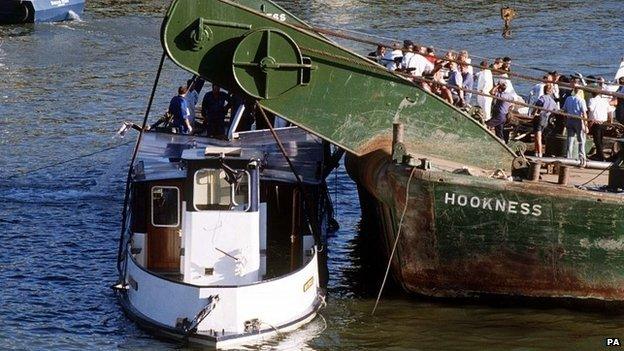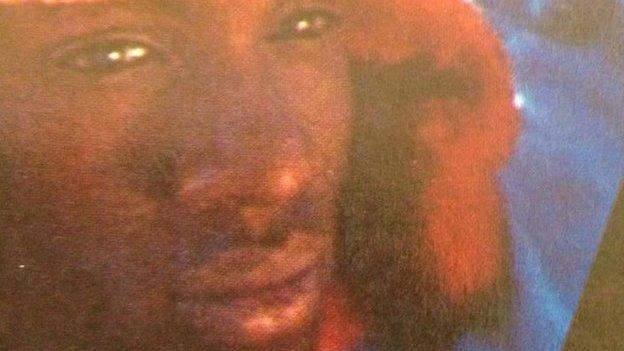Marchioness victims remembered 25 years on at service
- Published

There were 131 people on board when the pleasure boat sank on 20 August 1989
Relatives of 51 people who died when the Marchioness pleasure boat sank in the River Thames in London have gathered at a service to remember them 25 years on.
Marchioness was packed with 131 partygoers when it collided with dredger Bowbelle on 20 August 1989.
The names of the victims were read out at Southwark Cathedral, where 51 roses were laid and 51 candles were lit.
After the service, relatives dropped flowers into the river.
Following the disaster, a campaign by the Marchioness Action Group for improved safety led to lifeboat services being provided on the river.
Representatives from the Royal National Lifeboat Institute and the Port of London Authority were present at the lunchtime Eucharist service.
Holding on to memories
A bereaved mother, Judy Wellington, whose 20-year-old son Simon died when the boat sank, delivered a Bible reading during the service.
Margaret Lockwood Croft, 75, whose son Shaun, 26, died in the disaster, said: "Shaun is always in my thoughts. I have to hold on to all the memories - his laughter, his caring ways.
"He was born on the same day as me. He was the greatest birthday present I ever had."
Odette Penwarden, 67, who survived the disaster, led the prayers.

Shaun Lockwood Croft's mother said she was holding on to 'all the memories'
She said: "I had five friends on the boat and sadly they all died."
Richard Hall, a passenger on another pleasure boat, the Hurlingham, who helped rescue people from the struck vessel also attended the service.
He said: "I remember it all. It's all crystal clear - the impact, the boat going down.
"I managed to pull four people from the water and those on the Hurlingham rescued 28 in total."
In 1991 a report by the Marine Accident Investigation Branch into the disaster said poor lookouts on both vessels was the immediate cause of the tragedy.
In his 2001 report, Lord Justice Clarke reached the same conclusion following a public inquiry.
During the decade-long gap, captain of the dredger Bowbelle, Douglas Henderson, was also formally acquitted after two separate trials failed to reach verdicts on a charge of his failing to keep a proper look-out.
An inquest into the disaster returned a verdict of unlawful killing, but in July 1996 the Crown Prosecution Service said there was insufficient evidence to justify any further criminal proceedings.
- Published20 August 2014
